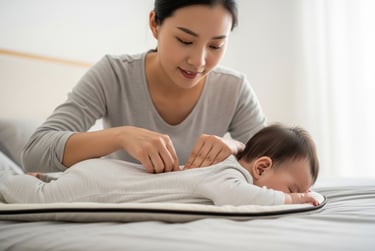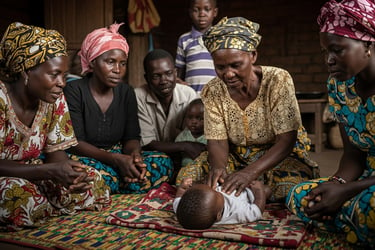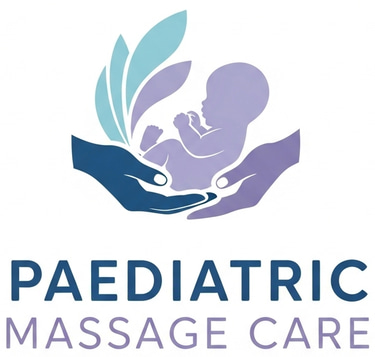What is Infant Massage?
In India, the daily ritual of Abhyanga (oil massage) is a cornerstone of Ayurvedic tradition. It's believed to strengthen the baby's body, aid digestion, and foster the bond between mother and child.






Infant massage isn't a modern trend; it's a global tradition passed down through generations. For thousands of years, cultures across the globe have understood that loving touch is fundamental to a baby's development.
Across many African communities, massage is a daily practice that strengthens a baby's limbs, preparing them for walking, and is often a communal activity that integrates the child into the family and community.
In China, massage is used as a form of traditional medicine known as Tui Na. It focuses on specific acupressure points to balance the body's energy (Qi), soothe a baby's digestive system, and promote overall health.
These traditions are a testament to the universal understanding that touch is a fundamental human need. Modern science is now catching up, providing evidence that supports this ancient wisdom.
Here are some of the most common questions we get asked, with responses that are backed by expert-led research, for your peace of mind:
My baby is so fussy and doesn't sleep well. Can massage help with that?
Absolutely. Regular massage can become a calming part of your baby's bedtime routine, helping to establish better sleep patterns¹. This practice also helps your baby learn to calm themselves, as the gentle touch helps them experience and remember a state of calm.
How does touch affect my baby's mood?
The physical and emotional contact of massage triggers a powerful hormonal shift. It reduces cortisol (the stress hormone) and increases oxytocin (the "love hormone"), dopamine (the "feel-good" hormone), and serotonin (the mood stabiliser) ². This is a key reason why babies feel so happy and relaxed after a massage.
How does massage help my baby feel safe and close to me?
Loving touch helps a baby feel safe and secure, which builds a strong sense of attachment and trust. The non-verbal communication in massage promotes an early, deep connection between you and your baby, laying the groundwork for a secure relationship.
Can massage really help my baby's brain and body develop?
Yes. The sensory stimulation from massage can help quicken the growth of the myelin sheath, which coats nerve fibers and allows for faster nerve impulses ⁵. This is essential for brain development. Additionally, massage promotes muscular development and tone, improving flexibility and coordination ³.
I heard massage can help with my baby's tummy troubles. Is that true?
It is. Massage helps to stimulate your baby's digestive system, which can be very effective in managing common infant discomforts like gas and colic ⁴. It's a gentle, natural way to help soothe their belly.
References
Dieter, J. N., & Field, T. M. (2017). The effects of infant massage on newborn sleep and circadian rhythms. Infant Behavior and Development, 49, 116-121.
Field, T. M. (2010). Infant massage therapy. Infant and Child Development, 19(1), 59-69.
McClure, B., & Field, T. M. (2018). Infant massage: A review of the literature. International Journal of Environmental Research and Public Health, 15(7), 1437.
Hernandez-Reif, M., Field, T. M., & Largie, S. (2019). Infant massage therapy for gas and colic. The Journal of Alternative and Complementary Medicine, 25(8), 834-840.
Underdown, A., & Field, T. M. (2020). The effects of infant massage on myelination. Early Human Development, 148, 105151.
© 2026 Paediatric Massage Care Pty Ltd,
Connect With Us
Classes & Consultation Services
Baby Massage Classes
Infant Massage Classes
Paediatric Massage Classes
Private one-on-one Sessions
Community /Group Sessions
Workshops & Presentations
Consultations & Support
